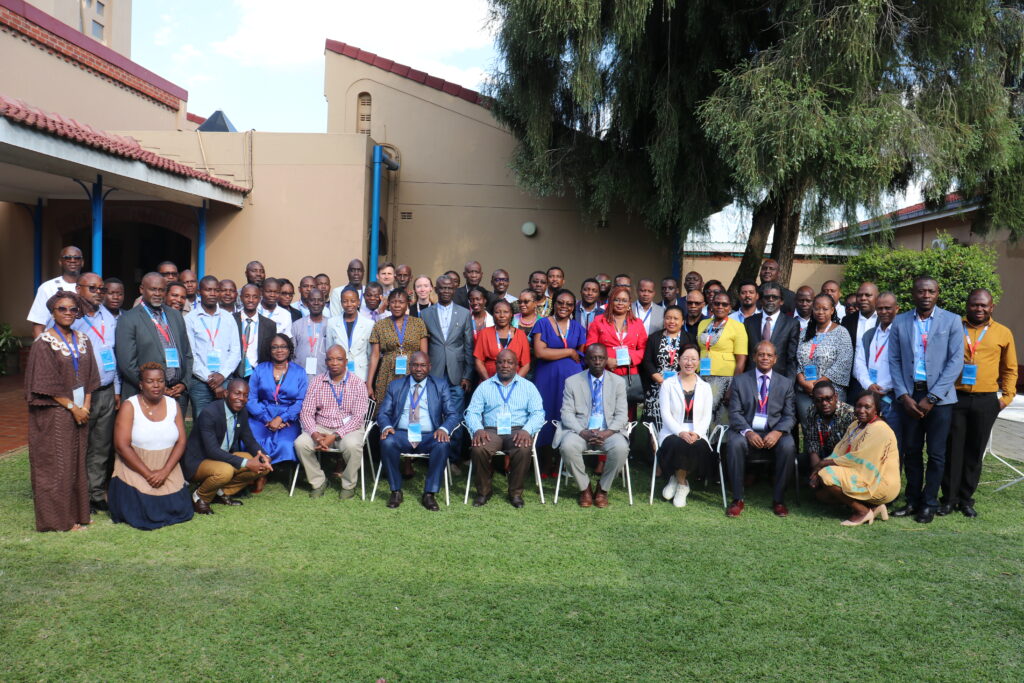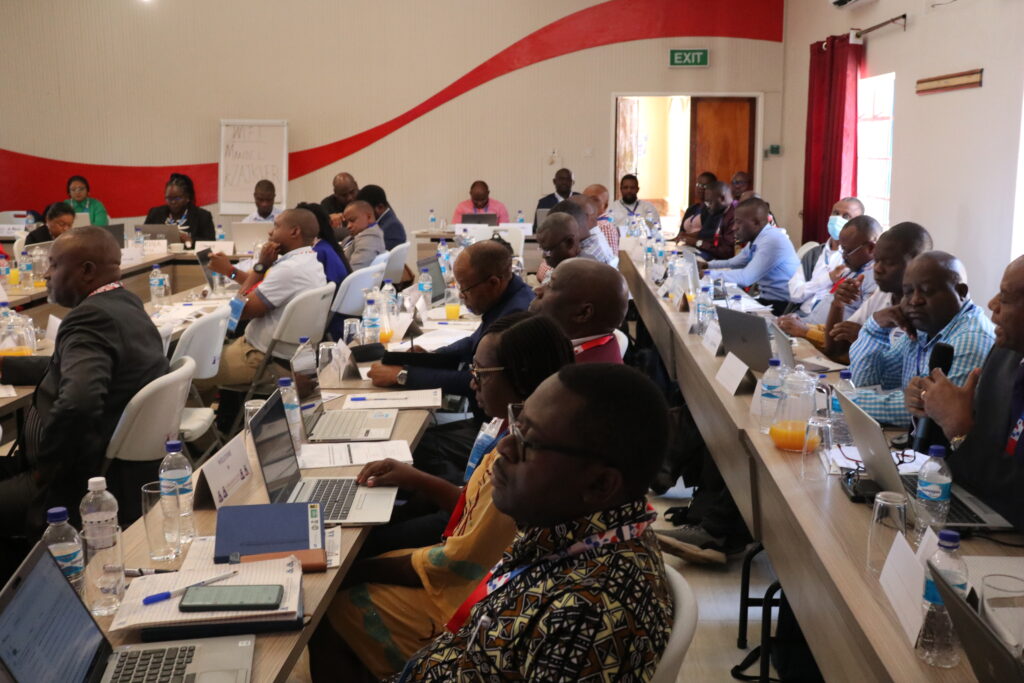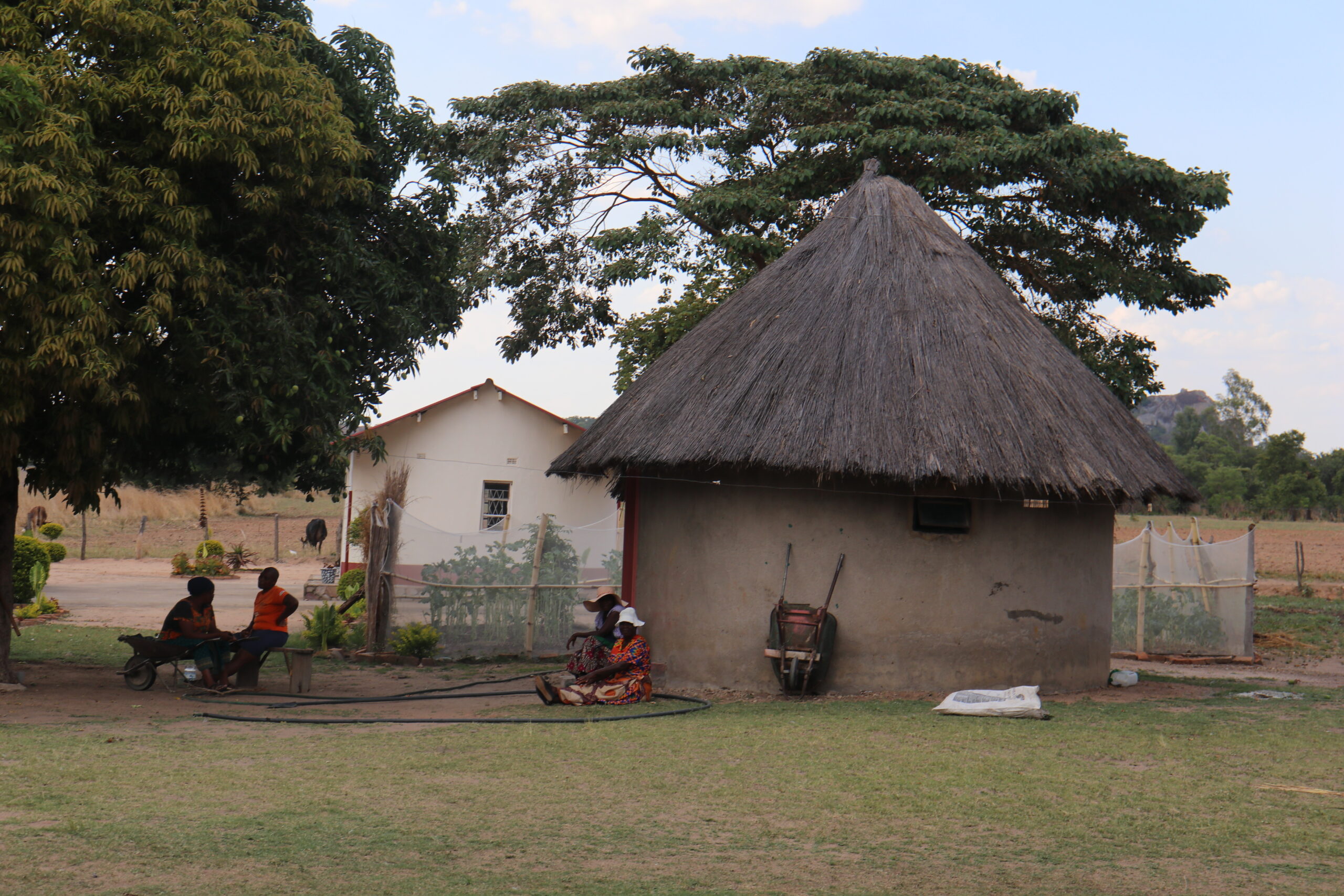In December 2023, Dr Sunday Ochai, Science Officer at ICARS, travelled to Zimbabwe to visit the Mandel Training Centre in Harare. The primary objectives of this visit were to take part in the AMR Multi-Stakeholder Partnership Platform and the RENOFARM workshop, visit the Farmer Field School in the Murewa district, and present on community approaches to mitigating AMR in Africa.
RENOFARM Workshop Paves the Way for Global Collaboration
The focal point of the trip was the participation in the AMR Multi-Stakeholder Partnership Platform (AMRPP) and the workshop on “Reducing the Need for Antimicrobials in Agrifood Systems” (RENOFARM). The RENOFARM initiative, launched by the Food and Agriculture Organization (FAO), aims to counteract the threat of AMR globally.
The workshop emphasised voluntary participation, inviting countries, UN agencies, partners, corporations, institutions, and civil society to join the initiative. ICARS actively engaged in group discussions focusing on implementing RENOFARM in the unique context of African agrifood systems, recognising diverse landscapes and tailoring strategies for success.

Farmer Training Through Farmer Field School
A visit to the Farmer Field School in the Murewa district of Zimbabwe revealed tangible benefits for participating farmers. Enhanced biosecurity measures resulted in increased productivity, reduced production costs, and diminished dependency on external inputs. The use of herbs for disease treatment, coupled with the sense of community among farmers, highlighted the positive impact of community-driven agricultural education programmes on sustainable development.
ICARS’ Presentation Shines Spotlight on Community Approaches
Dr Ochai, representing ICARS, delivered a comprehensive presentation on the organisation’s intervention and implementation research activities in Africa. Focused on community approaches in the animal sector, the presentation stressed the critical role of communities in addressing AMR. A special emphasis on incorporating a gender lens in AMR research garnered significant interest.

ICARS Recognised as a Key Player in Global AMR Mitigation
Numerous entities, including the United Nations Development Programme (UNDP), FAO, SADC, and the government of Zimbabwe, acknowledged ICARS for its pivotal role in the global mitigation of AMR. The recognition highlighted ICARS’ collaborative and impactful initiatives, showcasing the organisation as a key player in shaping and implementing effective strategies to address AMR in Africa.
Engagement with Ministries Sets Stage for Future Partnerships
Dr Ochai had the opportunity to meet with ministry representatives from Senegal, Madagascar, Eswatini, Botswana, Ghana, Sierra Leone, Cameroon, and Namibia who provided valuable insights into country-specific challenges and strategies. Discussions involved the ICARS model and potential funding and partnerships opportunities.
Lessons Learned and Successes
The visit underscored the importance of community engagement, tailoring interventions to local contexts, multi-stakeholder collaboration, capacity building, and data-driven decision-making in the mitigation of AMR. Following the visit, ICARS looks forward to further deepening its partnerships with African countries and fellow stakeholders.

